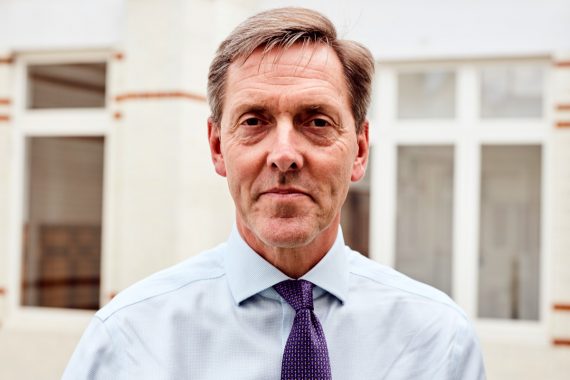Deprioritising ‘non-essential’ work must have ‘minimal impact’ on patients, says RCGP

GP deprioritisation of ‘non-essential’ work must have a ‘minimal impact’ on patients, the RCGP has said.
Earlier this month, updated guidance from the RCGP and BMA recommended that ‘most’ GP practices in the UK should pause all or a ‘significant’ proportion of their non-essential work.
At the time, they stressed that practices ‘must not undermine the message’ that general practice is open.
Now the RCGP has said that it is ‘important’ that any decisions to prioritise certain services have ‘a minimal impact on the care patients receive’.
RCGP chair Professor Martin Marshall said GPs and their teams are working ‘incredibly hard’ delivering ‘vital’ services alongside the Covid vaccination programme and expanded flu programme.
He added: ‘However, we’re in a pandemic, working under intense pressures, and tough decisions are being made right across the health service about what services need to be prioritised.
‘It’s important that these decisions have a minimal impact on the care patients receive, which is why our guidance developed with the BMA focusses on deprioritising non-essential work, such as routine health checks and non-patient facing work, for example non-essential paperwork.’
Decisions to stop non-essential work ‘will not be taken lightly’ and will be based on guidance, GPs’ clinical judgement and the needs of their local populations, he said.
However, Lancashire and Cumbria LMCs chief executive Peter Higgins told Pulse that it is unrealistic to suggest that patients will not be affected by the prioritisation of work.
He said: ‘If you deprioritise non-essential work, of course it’s going to have an impact on patients, but the whole Covid [pandemic] has an impact on patients.
‘GPs can’t do everything they want to do, but if you want a service that concentrates on priority areas and meets the urgent needs of patients, non-urgent things have to take a backseat for now.’
Mr Higgins added that he is worried about GP burnout, with some working 15-hour days amid a ‘perfect storm of increased workload, increased need and decreased workforce’.
He said: ‘There isn’t a plan B and there isn’t a magic workforce out there to come and augment the current workforce.’
The LMC has written to GPs in the area to reassure practices that they ‘can’t do everything’ but that the LMC will support them with ‘whatever difficult decisions they have to make’, he added.
And discussions are ongoing at ICS level about how to provide ‘clarity’ on what can be ‘reasonably expected of practices’, he said.
Meanwhile, Professor Marshall reiterated that GP services ‘will continue to be available as they have throughout the pandemic’.
Although they are providing care ‘differently than usual in some cases’, GP teams ‘remain busy’, he added.
According to the latest RCGP data, general practice delivered approximately 2.5m more appointments in the last nine weeks of 2020 than in the same period in 2019, he said.
It comes as two-thirds of GPs have experienced a ‘significant’ increase in ‘workload dump’ by hospitals due to the pandemic.
Earlier this month, NHS England set out a range of measures in a bid to address GP workload in the coming months.
This included the suspension of local enhanced services and further QOF income protection to help GPs manage their workload as they roll out delivery of the Covid vaccine.
And GPs in London were asked to ‘stand down’ routine work over a two-week period and ‘focus on urgent care’, including support for care homes.
Related Articles
READERS' COMMENTS [6]
Please note, only GPs are permitted to add comments to articles










Irrelevant professorial drivel
Someone has just sharted a proclamation form the college. Nothing to see here.
The RCGP bigwigs must be on a lot of titanium ointment – the continual straddling of every nearby fence must be terribly chafing.
There isn’t a plan B and there isn’t a magic workforce out there to come and augment the current workforce.’
there is actually – it’s called the locum workforce. most locums would certainly come and help………………if they were asked. however, they are not mystic meg(s), and do not know where the gaps are unless someone approaches them.
when those “at the top” stop treating locums as second class citizens, and treats them with a bit of respect, they might find out that a lot of them have a vast amount of experience – sometimes more than the partners they are covering.
fortunately for everone i locum in rural wales – where surgeries say please and thankyou, and generally treat you as an equal, which is why i’m quite happy to carry on working at the age of 71.
https://www.theguardian.com/politics/2021/jan/21/firm-linked-to-tory-donor-lord-ashcroft-wins-350m-covid-contract
rcgp=gongchasers
why pay them?